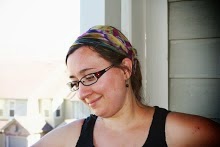 Thoughts on writing and prayer from Madeleine L'Engle's wonderful book, Walking on Water: Reflections on Faith and Art.
Thoughts on writing and prayer from Madeleine L'Engle's wonderful book, Walking on Water: Reflections on Faith and Art.So we must daily keep things wound; that is, we must pray when prayers seem dry as dust; we must write when we are physically tired, when our hearts are heavy, when our bodies are in pain.
We may not always be able to make our "clock" run correctly, but at least we can keep it wound so that it will not forget.
~~~~~~~~~~~~~~~~~~~~~~~~~~~~~~~~
To work on a book is for me very much the same thing as to pray. Both involve discipline. If the artist works only when he feels like it, he's not apt to build up much of a body of work. Inspiration far more often comes during the work than before it, because the largest part of the job of the artist is to listen to the work and to go where it tells him to go. Ultimately, when you are writing, you stop thinking and write what you hear.
To pray is to listen also, to move through my own chattering to God to that place where I can be silent and listen to what God may have to say. But if I pray only when I feel like it, God may choose not to speak. The greatest moments of prayer come in the midst of fumbling and faltering prayer rather than at the odd moment when one decides to try to turn to God.








2 comments:
I feel that your perspective is deep and everything is pretty good given the perceptions and opinions logic together. Prayer and what can be brought to us
Over 50 million people were killed in the war, more than 20 million of them Russians. World War II is also remembered for the very large number of Jewish and other people killed in German concentration camps and the harsh treatment of prisoners of war captured by the Japanese alsabaak - alsabaak - alsabaak - alsabaak - alsabaak
Post a Comment